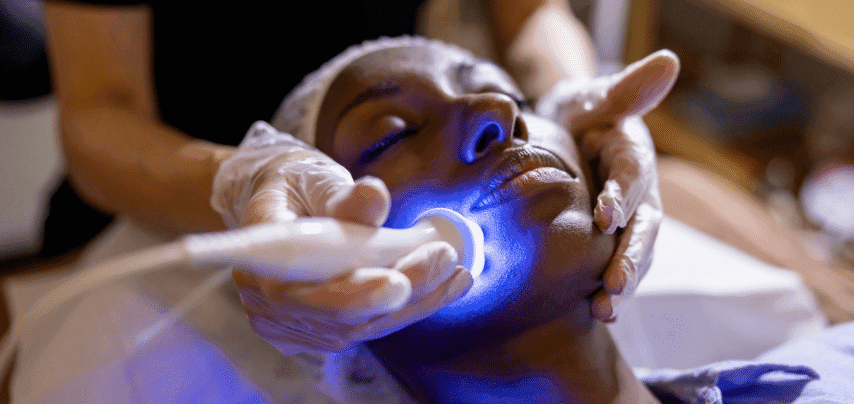The non-surgical aesthetic treatment sector in the UK is rapidly expanding. While the precise size of the industry is debated, it was estimated to be valued at £3 billion by the end of 2022, with growth projections indicating it could reach £5.4 billion annually by 2026.
Given the scale and value of the sector, it is surprising that the aesthetics industry in England and Wales is not yet formally regulated and that there is currently no statutory obligation on practitioners to maintain indemnity cover. The result of this is that, depending on their professional qualifications, some practitioners working in the sector are regulated, whereas others are not.
This position is set to change as the Government has introduced a statutory roadmap to regulate this key sector under the Health & Care Act 2022. Included within the UK Government's flagship healthcare legislation for this Parliament, this new legislation has set in motion the implementation of a licensing scheme aimed at regulating both premises and practitioners offering specific non-surgical cosmetic procedures in England. The new regulatory framework will aim to enhance public safety by raising and maintaining standards within the industry and will introduce a mandatory requirement for insurance coverage for the affected procedures.
Quite how this will play out in practice remains unclear, and, as ever, the devil will be in the detail. At this juncture, we do not know when the regulations will come into force and there is very little detail as to how the framework will operate in practice.
We know that the new regulations will only come into effect following a lengthy consultation period. This is to be welcomed as the consultation process should ensure that the professionals who the new framework will most directly impact will at least have had their say in its scope and content.
We also know that the key provision of the new legislation will be the introduction of mandatory practitioner and premises licences. The practitioner licensing scheme will require practitioners to meet defined knowledge, skill, and proficiency standards. The framework will also introduce minimum practice premises requirements (which will require their own licence), in addition to the need for practitioners to carry indemnity insurance and the introduction of formal complaints procedures.
What we know so far
Implementation Timeline: The specific timeline for the new licensing scheme has yet to be announced, but it appears that two national consultation exercises are due to take place. The first is to define the procedures included within the licence scope, and the second is to establish education and training standards. On this basis, current thinking is that the full implementation of the licence will likely take around two years.
Licensing Requirements: Details are yet to be finalised, but practitioners who perform procedures within the scope of the new licence will need to demonstrate a nationally determined standard of knowledge, skill, and proficiency. This will be irrespective of their background and applies to every practitioner to ensure they are fully fledged and proficient in the treatments that they offer to the public within the confines of the new licence. Practitioners will also be required to practice from premises that meet national health protection and infection control standards. The licence will cover issues such as product supply, storage, prescribing practices, complaints procedures, and insurance requirements.
Transition Period: There will likely be a transition period to allow currently unregulated practitioners to obtain the new licence before it becomes illegal to offer procedures without one. The transition period is expected to provide enough time for practitioners to meet the requirements and avoid creating a backlog of applications.
Existing Regulated Practitioners: Practitioners already regulated by professional bodies or registered with the Care Quality Commission (CQC) will still need to comply with the regulatory requirements of the new licence once it is defined. There may be discussions and agreements between the CQC and local licensing authorities to ensure efficient inspection and regulation processes.
Insurance Requirement: It is anticipated that indemnity insurance will be mandatory for procedures covered by the scope of the licence. All practitioners will be legally required to hold insurance to protect the public in case of any adverse events or complications.
Qualifications and Training: The exact qualifications required for practitioners to offer procedures under the new licence are yet to be determined. The Government intends to establish a mandated national standard that all practitioners must meet. Importantly, all stakeholders – including the industry, practitioners, and the public – will have the opportunity to provide input through the consultations.
Licensing and Penalties: The new licensing scheme will prohibit individuals from offering specified cosmetic procedures without a licence. Local Authorities, specifically environmental health and licensing officers, are expected to enforce the licence. There will likely be penalties, such as financial fines, for non-compliance. Local authorities also have existing powers to prosecute individuals who practice without a licence under the Health and Safety at Work Act.
Conclusion
The introduction of mandatory regulation to this sector is not universally popular and risks being costly and inconvenient for some unregulated practitioners who are, of course, already providing a very safe and effective service to their clients. Our view is that this is nevertheless a welcome development as it recognises the professionalism of all practitioners, and it demonstrates the ongoing commitment by the cosmetic sector to raise standards and enhance public safety.
The upcoming consultations represent a unique opportunity for constructive collaboration and dialogue between practitioners, Government, professional bodies, and industry stakeholders to shape the licensing requirements and establish a smooth transition process. It is vital that everyone affected makes the most of this opportunity for their voices to be heard.



